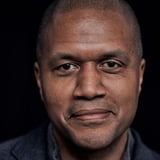Summary
Data cannot interpret the world. Only humans can. Because of that, the next evolution of AI requires a more collaborative approach to building systems. And UX researchers are uniquely positioned to build the dream team responsible for managing the data collection required for more responsible AI. Anthropology and sociology methodologies provide us the framework to interpret human behavior in a way that telemetry can't. Qualitative research leads to more socially conscious computing decisions that will impact technology companies going forward. Join this fireside conversation to discover... The power of changing one tiny acronym from "Human-Computer Interaction" to "Human-Centered Innovation" Expert recommendations for building more responsible technology What it will take to build a fundamental practice around collecting and analyzing high-quality data Practical steps you can take today to build ethical products in the future
Key Insights
-
•
Jakarta drivers formed self-organized physical base camps replicating workplace communities despite digital platform pressures.
-
•
User-driven innovation, such as hacked apps distributed via WhatsApp, addresses gaps platforms overlook, influencing official feature adoption.
-
•
Technology impacts vary greatly by local context; US-centric assumptions do not hold true globally.
-
•
Qualitative ethnographic research is essential to uncover why and how technology affects communities beyond surface-level metrics.
-
•
Researchers should be reflexive about their own assumptions and power when engaging with communities.
-
•
Early involvement of qualitative research in product development can prevent gap between company assumptions and user needs.
-
•
AI evaluation methods relying solely on automated classifiers risk missing context-specific social meanings and harms.
-
•
Human-in-the-loop evaluation benefits from nuanced research designs considering diverse perspectives and cultural contexts.
-
•
Companies adopting driver base camps acknowledge grassroots knowledge but create exclusion and new social rifts.
-
•
Building trust requires long-term relationship building with communities and local partners, not 'parachute research.'
Notable Quotes
"Drivers continued the practice of hanging out in physical base camp spots despite platforms saying they wanted to get rid of them."
"Users are smart, innovative, and a lot of the innovation actually comes from users rather than big companies."
"Technologies don't have universal impact; what happens in New York vs Jakarta can be very different."
"Sometimes you have to completely change your research questions after building relationships with the community."
"Researchers often treat users as checkboxes, going in, doing research, checking the box and leaving."
"Companies have started building their own base camps, but these feel more exclusionary compared to grassroots ones."
"We shouldn't let the world of computer science make us forget our own power and what we bring to the table."
"It's important not to be a parachute researcher who just jumps in, asks questions, and jumps out without impact."
"Qualitative researchers can help design better human-in-the-loop evaluation guidelines that consider social context."
"Building more ethical, responsible, and humanistic forms of technologies requires diverse and interdisciplinary conversations."
Or choose a question:
















More Videos

"We often say don’t make me think. When that’s not possible, reuse and recycle those learnings."
Sam ProulxOnline Shopping: Designing an Accessible Experience
June 7, 2023

"We want to build consultants who can solve problems across a variety of projects and clients."
Ignacio MartinezFair and Effective Designer Evaluation
September 25, 2024

"Embedding designers gave them deep expertise but siloed goals prevented consistent cross-product experiences."
Sarah Kinkade Mariana Ortiz-ReyesDesign Management Models in the Face of Transformation
June 8, 2022

"The Shaker village sidewalks followed people’s natural inclinations, not forcing unnatural movement."
Daniel GloydWarming the User Experience: Lessons from America's first and most radical human-centered designers
May 9, 2024

"Those fishermen didn’t want political news—they wanted reliable weather forecasts to stay safe at sea."
Patrick BoehlerFishing for Real Needs: Reimagining Journalism Needs with AI
June 10, 2025

"How do you build in the context of what you specifically need rather than having tools drive the research process? That’s the future."
Andy Barraclough Betsy NelsonFrom Costly Complexity to Efficient Insights: Why UX Teams Are Switching To Voxpopme
September 23, 2024

"How do we as designers connect more deeply with the policy world? That’s still a developing thing."
Alexandra SchmidtWhy Ethics Can't Save Tech
November 18, 2022

"The greatest sin of the designer is to say I have the answers and no one else is allowed to have them."
Louis RosenfeldDiscussion: What Operations can teach DesignOps
November 6, 2017

"When you get stuck, fall back to the loop: observe, reflect, and make. Get out and talk to users."
Mitchell BernsteinOrganizing Chaos: How IBM is Defining Design Systems with Sketch for an Ever-Changing AI Landscape
September 29, 2021

















